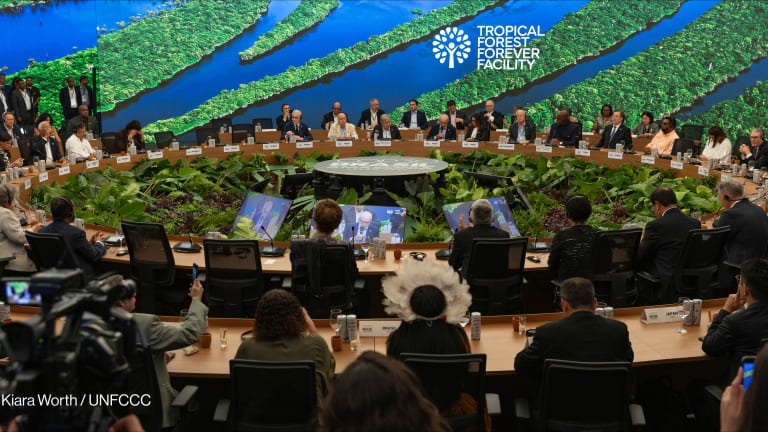On the opening day of the climate summit in Paris, 20 governments and dozens of high-tech industry leaders and philanthropists pledged to massively increase investment in research and development to spur innovation in clean energy. Although also the subject of high-level declarations, far less attention was devoted to a strategy for protecting the climate and promoting development that’s already in hand: maintaining tropical forests.
It’s not widely appreciated that tropical forests have enjoyed a special place in climate change negotiations over the last decade. Recognizing deforestation as a major source of greenhouse gas emissions, industrialized and developing countries have agreed on Reducing Emissions from Deforestation and Forest Degradation — or REDD+ — as a politically attractive mitigation strategy to meet global climate protection goals. Under REDD+, rich countries reward forest-rich countries for reducing deforestation on a payment-for-performance basis.
In addition to their crucial role in promoting global climate stability, standing forests support sustainable livelihoods and contribute to the resilience of households and societies. As a result, investment in protecting tropical forests offers a rare triple win for climate and development.






